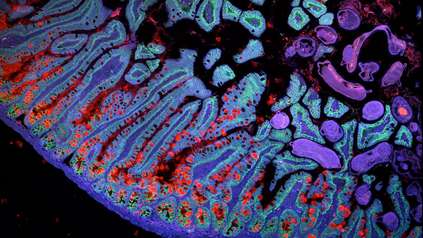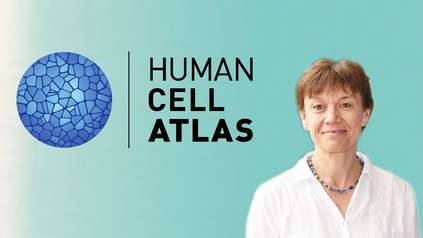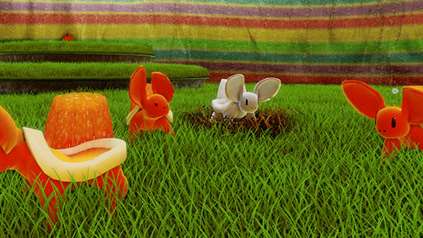Winning Cambridgeshire students design card game inspired by the Human Cell Atlas
The winners of a national competition to design a card game inspired by research into the human body have been announced. Three students from Kimbolton School near Cambridge produced the winning design, beating hundreds of other students. Led by Little Inventors, the competition was run in association with the One Cell at a Time Public Engagement project for the Human Cell Atlas.
Schools all over the country were invited to take part in the ‘How to Build a Human: Design a Card Game’ Challenge, and more than 100 teams entered. The challenge blended creativity and science and encouraged students to apply learning from different STEAM (Science, Technology, Engineering, Arts and Maths) subjects to create a fun game, inspired by the science of the Human Cell Atlas.
The Human Cell Atlas is an international scientific research project creating a map of every cell type in the human body. This map will transform our understanding of biology and disease and could revolutionise how we diagnose and treat illnesses.
The winning game was designed by Alistair Outram, 14, Filip Pekala, 14, and Tom Sumpton, 14, who are in Year Nine at Kimbolton School. Their game design, called AcCELLerate, will be developed and will feature in a nationwide exhibition for One Cell at a Time.
The judging panel included Richard Heayes, an award-winning game designer who will develop the game, Dominic Wilcox, founder of Little Inventors, and Anna Wilbrey-Clark, a staff scientist at the Wellcome Sanger Institute who is working on the Human Cell Atlas.
“We were so impressed with the game designed by Alistair, Filip and Tom. They are a great team. The illustrations were hand-drawn and incredibly professional, and the whole game is really well thought through, from the wording in the instructions to the gaming rules and tactics.”
Dominic Wilcox, founder of Little Inventors
“AcCELLerate is a race against time to collect all the cells in the digestive, circulatory, nervous, respiratory systems and the skin, but avoid picking up any viruses! Our idea was a quick-paced card game that is a race to build a human.”
Tom Sumpton, member of the winning team from Kimbolton School
“The Human Cell Atlas is looking to identify cell types in the body. I really liked how the AcCELLerate team captured what the HCA is aiming to do, and incorporated that into their game, with a wide range of cell types and information about the cells. It’s a great game for people to play and learn about the science of the Human Cell Atlas.”
Dr Anna Wilbrey-Clark, from the Wellcome Sanger Institute
The students created the game during lockdown, so they faced a further challenge in being unable to meet in person to test ideas or play the game to see if it worked. However, the trio shared the responsibilities for the design based on their own skills, including the hand-drawn illustrations by Tom.
“The competition was an inspiring extra-curricular activity and an opportunity for our pupils to engage with scientists working on cutting edge research. I look forward to seeing their game concept developed.”
Mr Peter Crawford, Kimbolton School Biology teacher
Now, the students will work with game designer Richard Heayes to transform their idea into a real-life product. This new game will feature in an exhibition entitled One Cell at a Time in autumn 2021, for which ten artists have been commissioned to create artworks and immersive installations inspired by the work of the Human Cell Atlas. The game will also be sent to all the schools that took part in the competition.
More information
Funded by Wellcome, One Cell at a Time is led by the Wellcome Sanger Institute, with collaborations across Cambridge, London, Newcastle and Oxford.





